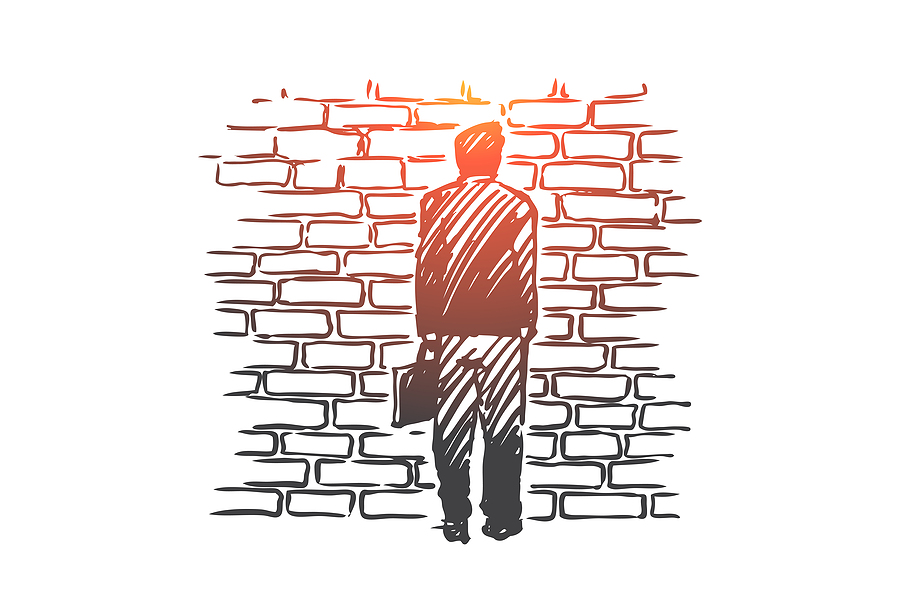One of the most common reasons people hesitate to engage in mediation is the belief that they’ve reached an “impasse” and that mediation would be a waste of time. It’s an understandable misconception—after all, if two people can’t resolve their differences on their own, how could sitting in a room with a mediator change anything?
Here’s the truth: reaching an impasse isn’t the end of the road—it’s where mediation begins. In fact, helping parties move past seemingly insurmountable disagreements is the very heart of what mediators do.
Understanding the Role of Mediation
Mediation isn’t about forcing agreements. Your mediator does not act as a judge to declare who’s right or wrong. It’s a collaborative process where a neutral third party helps facilitate communication, clarify misunderstandings, and identify solutions that might not be immediately apparent.
Think of it this way: if two people could agree on everything, they wouldn’t need mediation in the first place. Disagreements, even those that feel impossible to resolve, are the reason mediation exists.
Why Impasse Happens
An impasse can occur for many reasons:
1. Emotional Overload: Conflicts are emotionally charged, especially in divorce or family matters. Difficult feelings like anger, frustration, or sadness can cloud judgment and make thinking difficult.
2. Misperceptions: Each person may believe the other is unwilling to compromise when, in reality, both are simply unsure how to move forward.
3. Communication Breakdowns: Misunderstandings and poor communication can unnecessarily escalate disagreements.
4. Complex Issues: Some disputes involve layers of legal, financial, and personal considerations that are hard to untangle without guidance.
How Mediation Breaks Through Impasse
A skilled mediator is not just a facilitator of discussions. They delve deeper to uncovering the underlying concerns, needs, and priorities driving the conflict. Here’s how they do it:
1. Neutral Perspective: Mediators bring an unbiased, outside perspective to the conversation. They make things less adversarial by reframing contentious issues.
2. Structure and Focus: Unlike informal discussions that may spiral into arguments, mediation provides a structured process to keep discussions productive.
3. Creative Problem-Solving: A mediator knows how to think outside the box. This, in turn, helps people explore options they may not have considered.
4. Managing Emotions: Mediators create a safe space for both parties to express their feelings without derailing the process.
Voluntary Agreements, Not Forced Compromises
One of the most important principles of mediation is that any agreement reached is entirely voluntary. A mediator doesn’t impose decisions or pressure anyone to accept terms with which they’re uncomfortable. Instead, the goal is to help both parties identify mutually acceptable solutions, giving you full control over the outcome.
This principle is particularly valuable in high-stakes or emotional disputes. Knowing you control the outcome can make the process feel less intimidating and more empowering.
The Benefits of Mediation
Even when compromises are involved, mediation often provides significant advantages over litigation. These benefits are worth considering:
1. Financial Savings: Court battles can be incredibly expensive. Mediation can undeniably be far more cost-effective.
2. Emotional Well-Being: Resolving conflicts collaboratively is less stressful and emotionally draining than adversarial litigation.
3. Preserving Relationships: Maintaining a respectful relationship is crucial for co-parenting or future interactions, especially in family disputes. Basically, mediation helps set the tone for productive communication.
4. Tailored Solutions: Mediation allows for creative, personalized resolutions the courts may be unable to provide.
Addressing Common Concerns
If you’re hesitant about mediation because you feel the disagreement is too big to resolve, consider this: most people who engage in mediation start from a place of impasse. It’s entirely normal to feel stuck—that’s why mediators are here to help.
You might also worry about being forced into an agreement you don’t want. Rest assured, mediation is not about winners and losers or coercion. It’s about finding a path forward that works for both parties.
When Should You Consider Mediation?
If you’re at a standstill in negotiations, it’s the perfect time to bring in a mediator. Here are a few signs it’s time to consider mediation:
Communication has broken down, and discussions lead to arguments.
- You feel stuck and aren’t sure how to move forward.
- You want to avoid the expense and stress of litigation.
- You value maintaining a respectful relationship with the other party.
Final Thoughts on Breaking Impasse with Mediation
An impasse doesn’t mean your conflict is unsolvable. Rather, it’s simply a signal that you might benefit from a fresh perspective and professional guidance. Mediation is designed to address these exact challenges, helping you turn roadblocks into stepping stones toward resolution.
If you’re hesitant about mediation, remember that the process is entirely voluntary and focused on creating solutions that work for everyone involved. While reaching an agreement may require compromise, the financial, emotional, and relational benefits are well worth it.
So, if you’re facing an impasse, consider taking that next step. You might be surprised at what’s possible when you work with a mediator to find common ground.
Further Reading about Mediation:
Six toxic words to ruin your mediation
What are the benefits of divorce mediation?
Early intervention: Why mediation early in a family law case can save a fortune in fees and stress.

